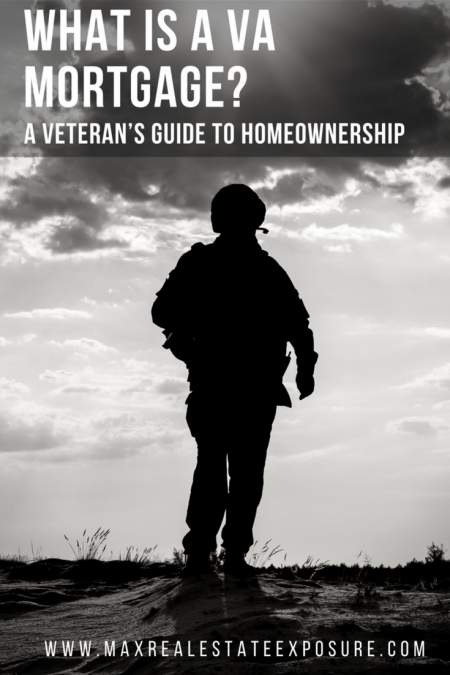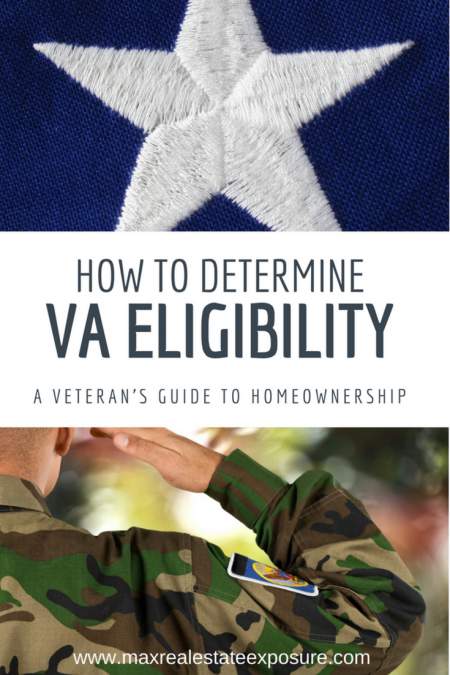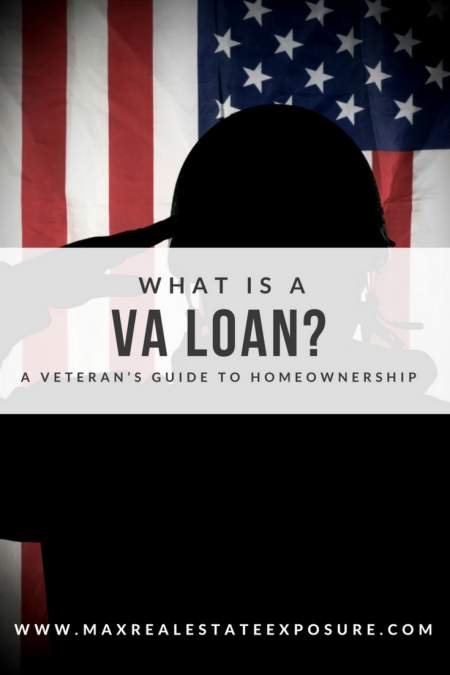 Are you considering a VA home loan? Do you want to know what a VA loan is and how they work? Our country owes a great bit of gratitude for those dear men and women who choose to serve the USA through military service.
Are you considering a VA home loan? Do you want to know what a VA loan is and how they work? Our country owes a great bit of gratitude for those dear men and women who choose to serve the USA through military service.
One of the ways we show that gratitude is through the VA loan. Since 1944, qualifying veterans have used the benefit offered through the federal government to purchase a home and carve out their little spot in the world.
VA loans are not for everyone. Even those who have served could have better financing alternatives. The following information is intended as a guide to help you understand who is eligible for a VA loan and how these mortgages work.
By the time you are done reading, you will understand what a VA loan is and how they work. The VA home loan guide should answer all your questions and more!
With this information on VA mortgages, you’ll be able to make sound decisions on whether this is a viable financing option for your needs.
Basics of the VA Loan
There are several types of loans available for most homeowners. However, the VA loan is unique because only qualifying veterans can apply for the mortgage.
The following VA mortgage facts offer a few distinct advantages over other loans.
- Down Payment is not required – The most talked-about aspect of the mortgage is that a house down payment is not mandatory. A qualifying veteran approved for a mortgage will not be asked to pay any money as a down payment. This one feature can save the veterans thousands of dollars.
- No requirement for private mortgage insurance – Conventional loans, as well as FHA loans, ask the borrower to pay private mortgage insurance if the borrower does not pay at least 20% down. The private mortgage insurance protects the lender, not the borrower, if the loan is not entirely repaid. This insurance can often add a significant fee to the monthly payment for the mortgage. However, in the case of the VA mortgage, there is no private mortgage insurance requirement.
- Great interest rates – Although the VA mortgage is not offered directly through the Veterans Administration, the federal government partially guarantees the loans. This allows lenders to offer VA loans at very competitive terms and interest rates compared to other types of mortgages.
All of these benefits make the VA mortgage a cost-saving way to purchase a home for veterans.
Determining VA Home Loan Eligibility
The most important criteria for the VA Mortgage are deciding who can benefit and buy a home. The Veterans Administration offers the advantage of 4 different types of veterans.
- Active-duty servicemen and women – a person must have served at least 90 days in the military during a time when the country is at war.
- Active duty during peace – a person must have served at least 181 days as a full-time military personnel during a time the country was at peace.
- National Guard or Reserves service – A person must have served at least six years in either the Reserves or the National Guard.
- Surviving spouse – A person must be a surviving spouse of a person that either (a) perished while serving in the line of duty or (b) died due to a disability-related to their service.
 For any military person that falls into one of the four categories mentioned above, they can contact their local lender and acquire their Certificate of Eligibility. Also known as the COE, the certificate can be obtained online by any lender qualified to offer a VA mortgage.
For any military person that falls into one of the four categories mentioned above, they can contact their local lender and acquire their Certificate of Eligibility. Also known as the COE, the certificate can be obtained online by any lender qualified to offer a VA mortgage.
The certificate outlines the veteran’s time of service along with other basic information.
After determining eligibility based on service, the veteran must also demonstrate they are financially eligible for the loan. This means the veteran will need to show proof that they can repay the loan.
For a veteran that is employed full-time, the lender will ask for basic documents such as the recent pay stubs covering the last 60 days, the past two year’s W-2 forms, and the last two year’s tax returns.
The lender will ask for the veteran’s personal and business tax returns from the previous two years for self-employed veterans.
The lender will use this information to calculate the veteran’s debt ratio and residual income. Although the VA home loan does not expressly limit the debt ratio, if the veteran’s current debt and proposed home payment are more than 41% of the gross monthly income, there will need to be compensating factors to qualify for the mortgage.
The veteran will need to have enough residual income to support themselves and their family.
The residual income figure is based on the family’s size and fluctuates slightly for different parts of the country.
In a nutshell, the Veterans Administration is trying to ensure that the veteran has enough money after all the bills are paid to take care of necessities like food, clothing, and insurance.
VA Appraisal and Closing Costs
After the veteran chooses a home and places a contract to buy the home, the lender will order an appraisal of the property. An appraiser that is approved by the VA will inspect the home to determine its value. Once the home is appraised, the lender can prepare the paperwork for the loan closing.
There are several costs associated with buying a home, regardless of the type of mortgage used. The following list represents the most common items that may be charged at the time of closing.
- Appraisal fee
- Home Owner’s Insurance
- Title exam/Title Insurance
- Credit report fee
- Mortgage electronic registration system fee
- Closing fee
- Title recording fee
It is also possible for the seller of the home to pay part or all the closing costs. The VA Administration states that up to 4% of the home’s purchase price can be used to cover the costs. This is a point of negotiation that should be discussed between the seller and the veteran’s real estate agent.
It is not uncommon for the offer price to be increased to offset any requested closing cost credit.
Understanding The VA Funding Fee
 Although we mentioned no down payment or private mortgage insurance requirements for the VA mortgage, there is a fee attached to all VA home loans. This item is known as the funding fee.
Although we mentioned no down payment or private mortgage insurance requirements for the VA mortgage, there is a fee attached to all VA home loans. This item is known as the funding fee.
The funding fee’s premise is to provide money to the Veteran Administration to continue offering the guarantee for future VA home loans.
For qualifying veterans buying their first home, the fee is 2.15% of the home’s purchase price. If the veteran uses their VA benefit again, the fee increases to 3.3%.
Thankfully, this fee does not have to be paid upfront. The VA loan guidelines will allow the fee to be added to the total loan amount, thus giving the veteran the ability to pay the fee back over time.
There are two groups of people that are not required to pay the funding fee.
The first group is surviving spouses, mentioned earlier. Since the veteran passed away either in service or due to a service injury, there is no need to charge the fee.
The second group is veterans whose income derives from disability pay based on their service. If a veteran was rendered disabled by their military service and is currently receiving disability compensation, they are not required to pay the VA funding fee.
These facts about how VA loans work are often not realized until speaking with a qualified mortgage professional.
VA Home Loans Offer More Than Just a Purchase Option
Although the most common use of the VA loan is to purchase a home, the VA mortgage can also be used as a refinance option. There are two ways to use the VA benefit for a refinance. They include the VA streamline refinance, and the VA cash-out refinance.
- Streamline Refinance – For any veteran that is currently paying on a VA mortgage, it is possible to refinance the loan to get a better rate, a lower term, or both. This option is called the Interest Rate Reduction Refinance Loan, or commonly known as Streamline Refinance.
- Cash-out Refinance – If a person has more value in their home than what they owe, they can refinance the mortgage to get the equity in cash. A qualifying veteran who currently has a mortgage, whether it is a VA mortgage or other home loan type, can use the VA home loan to refinance.
The veteran usually does not need a new home appraisal or a new Certificate of Eligibility for the streamlined refinance. As long as the last 12 mortgage payments have been made on time, the loan should be a simple transaction.
VA 2nd Tier: Having two VA Home Loans at The Same Time
Although the Veterans Administration frowns on allowing veterans to have two mortgages at the same time, there is a unique situation that will allow this. Learn which scenarios allow for the use of veterans’ second-tier entitlement below.
Consider an active-duty soldier that has been stationed at a particular location for a few years and decided to buy a home near the base. Two years after the home purchase, the soldier gets new orders requiring him to relocate across the country. In this situation, the veteran can retain their first home, rent it out, and buy a 2nd home at the new location.
There is quite a bit of calculation involved to determine how much the veteran can qualify to get the 2nd home. But it is possible.
Another scenario that allows for a 2nd loan is the purchase of a home after foreclosure. Once again, this situation will require some calculations on the lender’s part to see how much of the VA benefit was used on the first loan and how much is available for the 2nd mortgage.
The lender will also be cautious about reviewing the veteran’s qualifications and reviewing the debt to income ratio to make sure they can make the new payment. But a veteran can buy a 2nd loan with the VA benefit after going through a foreclosure.
Summing Up What Is A VA Loan
Without a doubt, the VA loan is one of the best ways for qualifying veterans to purchase or refinance a house. With all of the features designed for saving money and making sure the veteran can afford the loan, it is a great way to finance a home.
Hopefully, you now have a better understanding of a VA loan and how they work.
Additional Home Buyer Resources for Veterans:
- First time home buyers program – there are numerous financing programs out there when buying your first home. While VA loans are great options for those serving or who have served our country, there could be better alternatives. See some of the most popular first-time buyer loans.
- Avoid Home Buyer’s Remorse – one of the emotions you are bound to feel when purchasing your first home is remorse. Don’t fret, as this is a natural thought that goes through the minds of many. Sit back, relax, and think through your purchase carefully before making any rash decisions.
Use these additional resources when buying a home to make sound financial decisions. Buying a home is a big step. Be sure you are completely educated on the process.
Important Disclosure: The VA mortgage program is available to eligible Veterans only.
About the author: This article on what is a VA loan and how do they work was written by Luke Skar of Inlanta Mortgage – Madison, which serves Wisconsin, Illinois, Minnesota, and Florida. Since 1993 Inlanta Mortgage has provided award-winning customer service to clients who need to purchase a home or refinance an existing mortgage.
Luke serves as the Social Media Strategist for Inlanta Mortgage. His role is to provide original content for all of their social media profiles as well as generating new leads from his website, www.MadisonMortgageGuys.com NMLS ID #1016